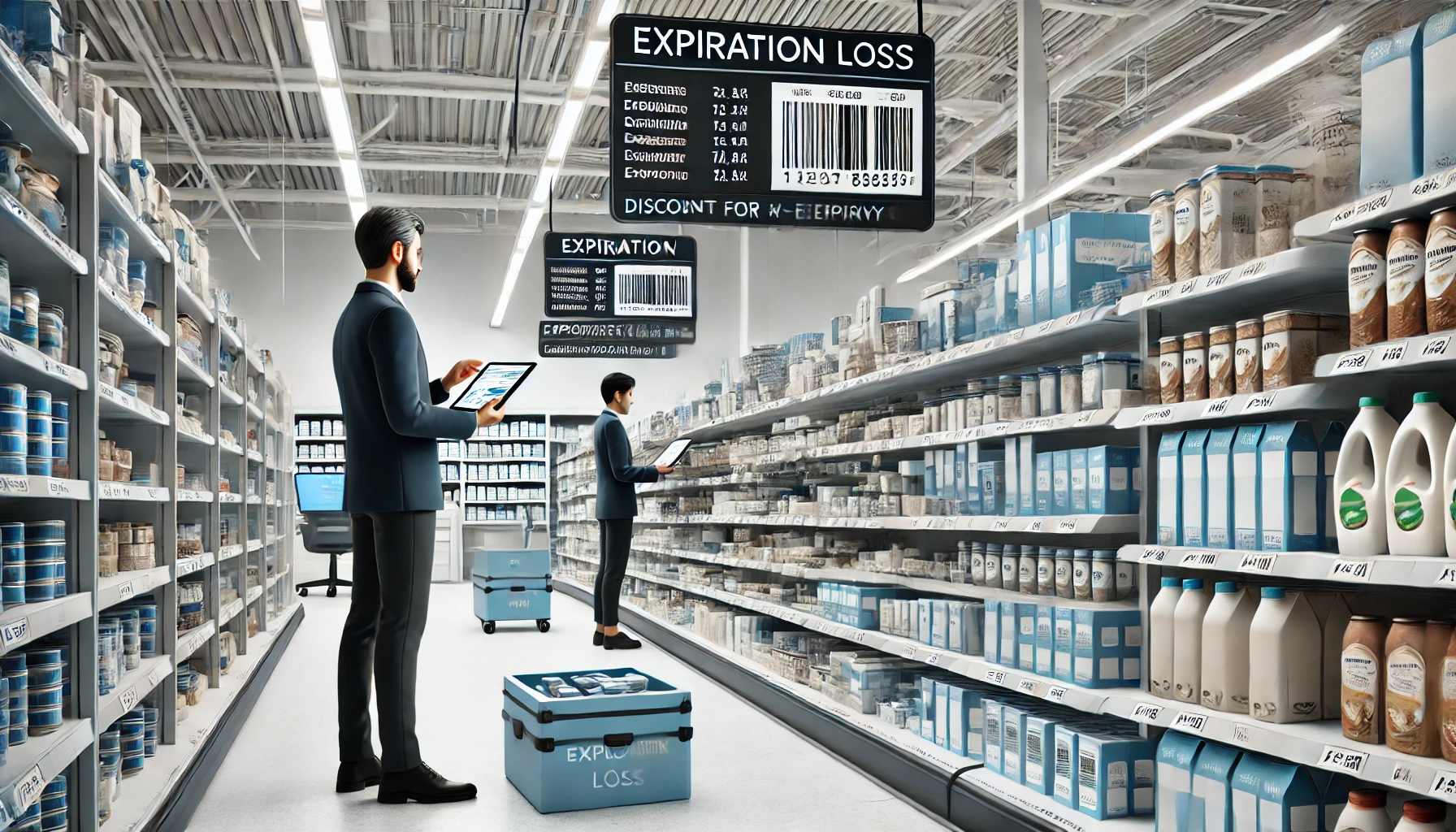Expiration loss is one of the main challenges faced by retail, especially for businesses that sell perishable goods such as food, medicine, and cosmetics. Waste caused by expired products directly impacts profitability, sustainability, and operational efficiency.
In this article, we explore the best practices to reduce expiration losses, control strategies, and technologies that help minimize this issue in retail.
What is Expiration Loss?
Expiration loss occurs when products reach their expiration date before being sold, making them unfit for consumption. This problem can result from inventory management failures, excessive purchasing, low product turnover, and lack of proper monitoring.
Main Causes of Expiration Loss:
- Excess Inventory: Unplanned purchases lead to stockpiling of products that are not sold in time.
- Lack of Expiration Date Control: Absence of continuous monitoring of expiration dates.
- Poor Stock Rotation: Older products remain stored while newer ones are displayed first.
- Pricing Errors: High prices may prevent products from selling before they expire.
- Lack of Employee Training: Untrained staff may not follow best practices for storage and display.
Strategies to Reduce Expiration Loss
To minimize expiration losses, it is essential to adopt effective control and planning strategies. Check out the main approaches:
1. Apply the FIFO (First In, First Out) Method
The FIFO (First In, First Out) method is essential to ensure that older products are sold first. To implement it:
- Organize shelves by placing items with the shortest expiration dates at the front.
- Train employees to restock shelves correctly.
- Use labels or markings to easily identify expiration dates.
2. Continuous Monitoring of Expiration Dates
- Conduct periodic audits to identify products nearing expiration.
- Use color-coded labels to differentiate products with shorter shelf lives.
- Create automated alerts in the inventory system to notify about soon-to-expire products.
3. Implementing Technology for Inventory Management
Technology is fundamental in preventing losses. Some solutions include:
- Inventory management software with expiration date tracking.
- Barcode scanners and RFID technology for real-time monitoring.
- Dynamic pricing systems, which adjust prices automatically as expiration dates approach.
4. Promotions and Progressive Discounts
Offering promotions for soon-to-expire products can reduce waste and attract customers.
- Create campaigns like “Quick Discount” for items with a few days left before expiration.
- Sell promotional kits, combining soon-to-expire products with high-demand items.
- Partner with institutions for product donations within the valid period, avoiding waste and contributing to social causes.
5. Smart Purchase Planning
- Analyze sales reports to understand the real demand for each product.
- Adjust purchase volumes according to seasonality and consumption history.
- Work with suppliers that offer flexible restocking and longer expiration dates.
6. Employee Training and Awareness
Employees play a key role in expiration date control.
- Conduct regular training on best storage and display practices.
- Create an internal manual with guidelines for expiration control.
- Establish loss reduction goals and reward teams that achieve better results.
Benefits of Controlling Expiration Loss
By implementing effective measures to control expiration loss, retailers can gain several benefits, such as:
- Reduced financial losses and increased profit margins.
- Greater operational efficiency, avoiding waste and improving product flow.
- Enhanced customer satisfaction, ensuring that all items are within the valid period.
- Sustainability, reducing environmental impact caused by product disposal.
Conclusion
Controlling expiration loss in retail requires a well-structured set of strategies involving planning, technology, employee training, and operational best practices. By implementing preventive actions, retailers can minimize losses, improve customer experience, and ensure a more sustainable and profitable operation.
Investing in efficient inventory and expiration date management not only reduces waste but also strengthens the company’s market reputation. By prioritizing loss prevention, retailers become more competitive and better prepared to meet modern consumer demands.
